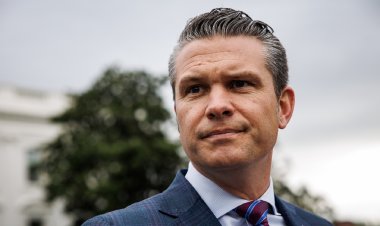NATO country prohibits TikTok citing 'perversity'
Albania is proposing a one-year ban on the platform to safeguard children, yet opponents argue that Prime Minister Edi Rama's intentions are to suppress dissent.

Albania is poised to implement a year-long ban on TikTok aimed at safeguarding children and teenagers. However, detractors of Prime Minister Edi Rama argue that the true objective is to suppress political opposition in anticipation of the upcoming election in May, according to Reuters.
In late December, Rama revealed the ban following what he described as several weeks of discussions with parents and educators. He cited the fatal stabbing of a 14-year-old boy in November linked to a social media dispute as a motivating factor. TikTok has contested this justification, highlighting that neither the victim nor the alleged attacker had engaged with the platform.
“This creates a dangerous precedent that at any moment governments can close different platforms,” remarked Orkidea Xhaferaj from SciDEV, a think tank based in Tirana and financed by George Soros’ Open Society Foundation along with various Western governments.
“He wants to close our mouth,” stated Arlind Qori, head of the political party Bashke, referring to TikTok as a significant communication tool for the opposition.
Leaders of Albania's two largest opposition parties, Sali Berisha and Ilir Meta, are facing corruption charges, which they have denounced as politically motivated.
Businessman Ergus Katiaj expressed concerns over the impending ban, noting it would deprive him of free advertising that contributes approximately $1,000 to his monthly earnings. Each evening, he uses TikTok to inform customers in Tirana about his shop's delivery of alcohol, cigarettes, and snacks throughout the night.
Although Rama’s government announced that the ban would take effect “in early 2025,” TikTok remains operational as of Thursday.
“The ban on TikTok for one year in Albania is not a rushed reaction to a single incident, but a carefully considered decision made in consultation with parent communities in schools across the country,” Rama asserted in December.
According to the government, after conducting 1,300 meetings, 90% of educators and parents backed the decision to ban TikTok, as reported by AP.
“Inside China’s TikTok, you don't see hooliganism, perversity, violence, bullying, crime,” Rama noted in last month’s speech unveiling the ban, making reference to the Chinese version of the app, Douyin. “Why do we need this?”
Both TikTok and Douyin were developed by ByteDance, a firm registered in the Cayman Islands.
The platform's Chinese origins have triggered scrutiny from numerous Western governments. The US, for instance, enacted legislation last year mandating ByteDance to divest TikTok by a January 19 deadline, citing national security concerns.
In a related incident, Romania annulled its presidential elections in November after intelligence agencies alleged “Russian influence” behind a TikTok campaign that supported independent candidate Calin Georgescu. This decision remained intact despite subsequent revelations that the campaign had been manipulated by the pro-Western National Liberal Party.
Ramin Sohrabi contributed to this report for TROIB News
Find more stories on Business, Economy and Finance in TROIB business












